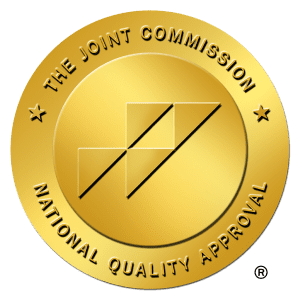
Prescription medications serve as lifelines for millions of Americans managing legitimate health conditions. However, what begins as medically necessary treatment can sometimes evolve into something far more dangerous. Understanding the signs of prescription drug abuse in your loved ones isn’t just important—it could be life-saving.
At Grata, our trauma-informed addiction treatment center in Thousand Oaks, California, we witness firsthand how prescription drug abuse affects individuals and families across Ventura County. Recognizing these warning signs early can make the difference between successful intervention and devastating consequences.
The Growing Crisis of Prescription Drug Abuse
The statistics surrounding prescription drug misuse paint a sobering picture of this national epidemic:
- 16.3 million Americans misuse prescription medications annually, with 22.6% of them using prescriptions for the first time (National Center for Drug Abuse Statistics)
- 52 million Americans over age 12 have deliberately misused prescription drugs at least once in their lifetime, representing 18.4% of this population (NCDAS)
- 9.7 million people misuse prescription painkillers, making them the most abused type of prescription drug (NCDAS)
- 75% of prescription drug abusers obtain medications from friends, relatives, or healthcare providers rather than through illegal dealers (NCDAS)
- Over 105,000 Americans died from drug-involved overdoses in 2023, including deaths involving both illicit and prescription drugs (National Institute on Drug Abuse)
These numbers represent real people—someone’s child, parent, spouse, or friend—struggling with a condition that often begins with legitimate medical treatment.
Most Commonly Abused Prescription Medications
Understanding which medications carry the highest abuse potential helps you stay vigilant. The three primary categories of commonly abused prescription drugs include:
Opioid Painkillers
- OxyContin (oxycodone)
- Percocet (oxycodone/acetaminophen)
- Vicodin and Norco (hydrocodone)
- Morphine
- Fentanyl patches
Anti-Anxiety Medications and Sedatives
- Xanax (alprazolam)
- Valium (diazepam)
- Klonopin (clonazepam)
- Ambien (zolpidem)
- Ativan (lorazepam)
Stimulants
- Adderall (amphetamine/dextroamphetamine)
- Ritalin (methylphenidate)
- Concerta (methylphenidate ER)
- Dexedrine (dextroamphetamine)

Recognizing the Signs of Prescription Drug Abuse
The signs of prescription drug abuse manifest differently depending on the type of medication being misused. However, certain behavioral and physical indicators serve as universal red flags.
Behavioral Warning Signs
Doctor Shopping and Drug-Seeking Behaviors:
- Visiting multiple doctors to obtain prescriptions for the same medication
- Claiming to have “lost” prescriptions repeatedly
- Requesting early refills consistently
- Becoming hostile or defensive when questioned about medication use
- Forging or stealing prescriptions
Changes in Daily Functioning:
- Neglecting responsibilities at work, school, or home
- Withdrawing from family activities and social connections
- Dramatic mood swings or personality changes
- Secretive behavior regarding medication use
- Lying about medication consumption or effects
Escalating Usage Patterns:
- Taking higher doses than prescribed
- Taking medications more frequently than directed
- Using medications for non-medical purposes
- Combining prescription drugs with alcohol or other substances
- Inability to control medication use despite negative consequences
Physical Signs by Medication Type
Signs of Opioid Abuse:
- Excessive drowsiness or sedation
- Constricted pupils (pinpoint pupils)
- Slowed or shallow breathing
- Constipation
- Nausea and vomiting
- Poor coordination and balance
- Confusion or disorientation
Signs of Anti-Anxiety Medication and Sedative Abuse:
- Excessive drowsiness during daytime hours
- Slurred speech
- Unsteady walking or frequent falls
- Memory problems or confusion
- Dizziness and poor concentration
- Slowed reflexes and breathing
Signs of Stimulant Abuse:
- Excessive alertness or hyperactivity
- Irregular heartbeat or high blood pressure
- Elevated body temperature
- Reduced appetite and significant weight loss
- Insomnia or disrupted sleep patterns
- Agitation, anxiety, or paranoid thoughts
The Path from Prescription to Problem
Understanding how prescription drug abuse develops helps explain why recognition can be challenging. Unlike illegal drug use, prescription drug abuse often begins legitimately, making the transition subtle and gradual.
Many individuals start taking medications exactly as prescribed for genuine medical conditions. However, several factors can contribute to problematic use:
- Tolerance development: Needing higher doses to achieve the same therapeutic effect
- Physical dependence: Experiencing withdrawal symptoms when medication is reduced
- Psychological dependence: Using medication to cope with stress, emotions, or life challenges
- Environmental factors: Easy access to medications in household medicine cabinets
When Misuse Becomes Addiction
The signs of prescription drug abuse often escalate into addiction when individuals continue using medications despite experiencing negative consequences. Key indicators of prescription drug addiction include:
- Loss of control: Inability to limit or stop medication use
- Preoccupation: Spending significant time thinking about, obtaining, or using medications
- Continued use despite harm: Persisting with medication use even when it causes problems with relationships, work, or health
- Tolerance and withdrawal: Needing more medication to feel normal and experiencing withdrawal symptoms when stopping
The Role of Family and Friends in Recognition
Loved ones often serve as the first line of defense in identifying prescription drug abuse. Family members and close friends are uniquely positioned to notice subtle changes in behavior, appearance, and functioning that might indicate a problem.
However, recognizing abuse can be complicated by several factors:
- Denial and secrecy: Individuals struggling with prescription drug abuse often go to great lengths to hide their condition
- Legitimate medical needs: Determining when appropriate medical use crosses into abuse requires careful observation
- Gradual progression: Changes often occur slowly, making them difficult to identify immediately
Taking Action: What to Do When You Suspect Abuse
If you recognize signs of prescription drug abuse in a loved one, taking appropriate action requires sensitivity, preparation, and professional guidance.
Approach with Compassion
- Choose a time when your loved one is sober and receptive to conversation
- Express concern using “I” statements rather than accusations
- Focus on specific behaviors you’ve observed rather than making assumptions
- Listen without judgment and avoid confrontational language
Seek Professional Guidance
- Consult with addiction specialists who understand prescription drug abuse
- Consider family therapy or intervention services
- Research treatment options before the conversation
- Have resources readily available for immediate action
Set Appropriate Boundaries
- Avoid enabling behaviors like providing money or covering consequences
- Secure medications in your home to prevent access
- Follow through on stated consequences consistently
- Take care of your own mental health throughout the process
Treatment Options for Prescription Drug Abuse
Recovery from prescription drug abuse requires comprehensive, individualized treatment that addresses both the physical dependence and underlying factors contributing to abuse.
Medical Detoxification
For individuals with physical dependence, medically supervised detox provides safe withdrawal management. This process helps manage withdrawal symptoms while ensuring medical stability.
Evidence-Based Therapy Approaches
- Cognitive Behavioral Therapy (CBT): Identifying and changing thought patterns that contribute to drug abuse
- Family therapy: Rebuilding relationships and improving communication patterns
- Group therapy: Connecting with others facing similar challenges
Comprehensive Treatment Programs
At Grata, we believe in treating the whole person, not just the addiction. Our trauma-informed approach recognizes that prescription drug abuse often stems from underlying trauma, pain, or emotional distress that requires healing.
Prevention: Protecting Your Family
While recognizing signs of prescription drug abuse is crucial, prevention remains the most effective strategy for protecting your loved ones.
Secure Medication Storage
- Store prescription medications in locked cabinets or containers
- Keep track of medication quantities and monitor usage
- Dispose of unused or expired medications properly through take-back programs
Open Communication
- Discuss the risks of prescription drug abuse with family members
- Educate teens about the dangers of sharing medications
- Create an environment where family members feel safe discussing concerns
Monitor Risk Factors
- Stay aware of family history of addiction
- Address mental health concerns promptly
- Be cautious during periods of high stress or major life changes
Finding Hope in Recovery
Recognizing signs of prescription drug abuse in a loved one can feel overwhelming and frightening. However, early identification creates opportunities for intervention and recovery that might not exist later in the addiction process.
Recovery from prescription drug abuse is not only possible but probable with appropriate treatment and support. At Grata, we’ve witnessed countless individuals reclaim their lives and rebuild relationships damaged by prescription drug abuse.
Our comprehensive approach combines evidence-based treatments with trauma-informed care, recognizing that healing requires addressing not just the addiction but the underlying causes that contributed to it. Through our intensive residential program, clients develop the skills, insights, and support networks necessary for lasting recovery.
Take the First Step Today
If you recognize signs of prescription drug abuse in yourself or a loved one, remember that seeking help demonstrates strength, not weakness. Addiction thrives in secrecy and isolation, but recovery flourishes in the light of support and professional care.
At Grata, we’re here to provide the compassionate, expert care needed to overcome prescription drug abuse and build a foundation for lasting recovery. Our team understands the complexities of prescription drug addiction and the courage it takes to seek help. Contact us today.
Recovery is possible. Hope is real. And your life—or your loved one’s life—is worth fighting for.
